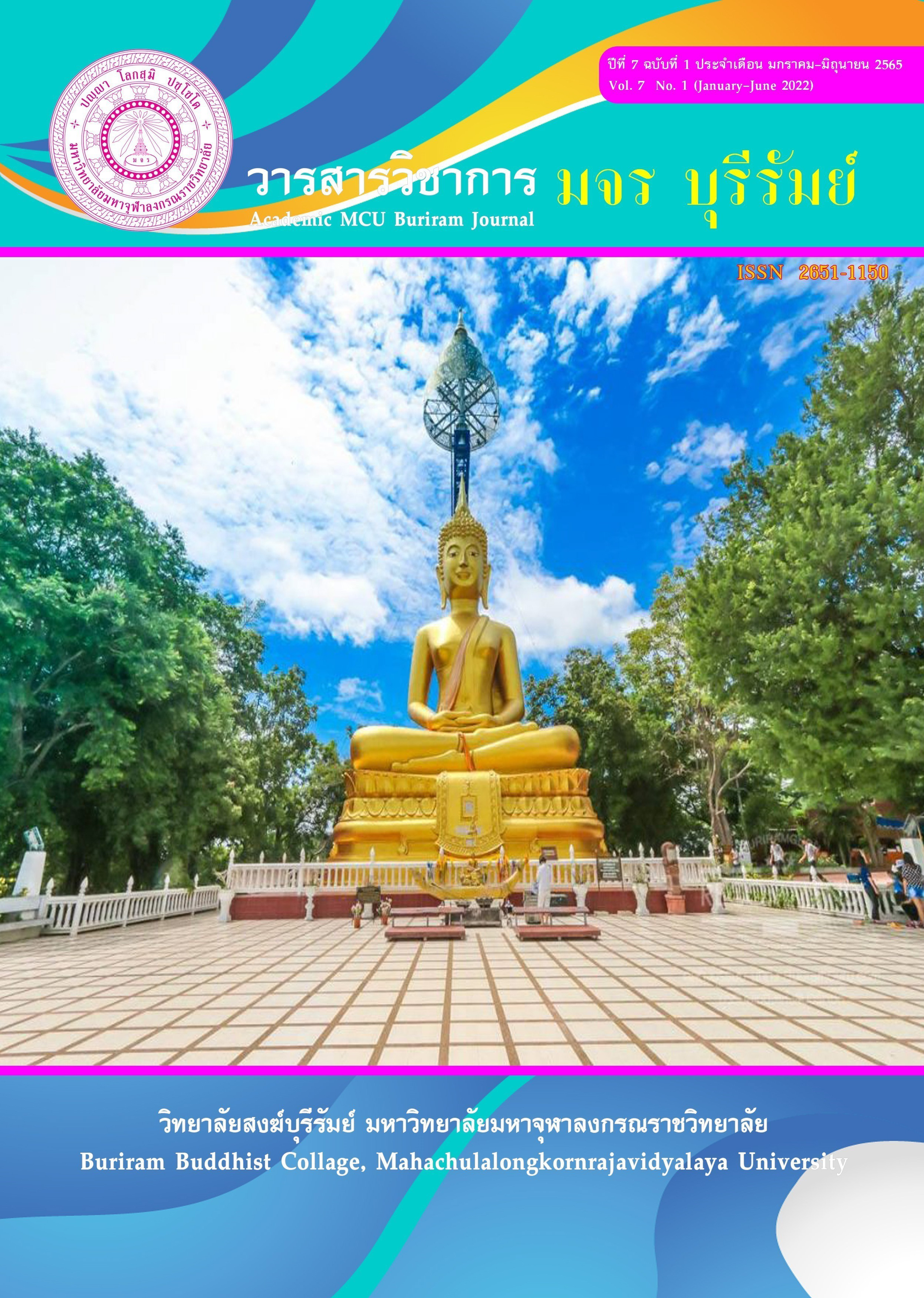Moral and Ethics for School Administrators for Excellence in Organizations in the Digital Age
Keywords:
Morality, Ethics, School Administrators, Excellence, Digital AgeAbstract
When stepping into the digital era (Dia Er), everything changes quickly and efficiently. A leap forward, digital technology has created a new lifestyle. both in economic and political society and has a huge impact on the management of educational institutions Because the digital era is an era where Everyone has access to technology that speeds up communication. transmission of various knowledge existing in society, whether it is news Images or vitae are fast everywhere and at any time. Therefore, education administrators need to change their attitudes and ideas of management to keep up. to the changing situation in the administration of the educational institution school administrators must have morals and ethics the administrators applied the Dharma principles in the educational institutions along with the management of all educational resources. School administrators who will succeed in to manage an organization in a competitive era, it is necessary to have important attributes, namely vision and School administrators with morals and ethics Must be a person who has a wide mind, looks far and wide, constantly scrutinizing the happiness of those who command equally. must be unbiased and, most importantly, have good morals is true friendship both to the management team and all personnel That is, one must be loved, respected, honored, etc. to work together easily. as well as to make the management work more efficient and effective.
References
วิชัย วงษ์ใหญ่ และ มารุต พัฒผล. (2562). การถอดบทเรียนเพื่อการเปลี่ยนแปลง. กรุงเทพมหานคร: บัณฑิตวิทยาลัย มหาวิทยาลัยศรีนครินทรวิโรฒ.
พฤทธิ์ ศิริบรรณพิทักษ์. (2561). การพัฒนากลไกขับเคลื่อนระบบการผลิตและพัฒนาครูสมรรถนะสูงสำหรับประเทศไทย 4.0. กรุงเทพฯ: สำนักงานเลขาธิการสภาการศึกษา กระทรวงศึกษาธิการ.
วริยา ชินวรรโณ และกรัณศุภมาศ เอ่งฉ้วน. (2558). จริยธรรมของผู้บริหารมหาวิทยาลัยของรัฐในประเทศไทย.
ราชบัณฑิตยสถาน. (2556). พจนานุกรม ฉบับราชบัณฑิตยสถาน พ.ศ. 2554 เฉลิมพระเกียรติพระบาทสมเด็จพระเจ้าอยู่หัวเนื่องในโอกาสพระราชพิธีมหามงคลเฉลิมพระชนมพรรษา 7 รอบ 5 ธันวาคม 2554. กรุงเทพฯ: ราชบัณฑิตยสถาน.
พระราชบัญญัติมาตรฐานทางจริยธรรม พุทธศักราช 2562. (2562, 16 เมษายน). ราชกิจจานุเบกษา. เล่ม 136 ตอนที่ 50 ก.
พูนสุข อุดม. (2557). การวิเคราะห์ปัจจัยเชิงสาเหตุและผลกระทบต่อการพัฒนาสมรรถนะของครูในภาคใต้ตามเกณฑ์มาตรฐานวิชาชีพด้านกระบวนการพัฒนาการจัดการเรียนรู้. วารสารวิจัยการศึกษา มหาวิทยาลัยทักษิณ, 2(3), 40-52.
พระธรรมปิฎก (ป.อ. ปยุตฺโต). (2545). พจนานุกรมพุทธศาสตร์ ฉบับประมวลธรรม. (พิมพ์ครั้งที่ 10). กรุงเทพฯ: สื่อตะวันจำกัด.
พระพรหมคุณาภรณ์ (ป.อ.ยุตโต). (2546). พจนานุกรมพุทธศาสตร์ ฉบับประมวลธรรม. (พิมพ์ครั้งที่ 12). กรุงเทพฯ: การศาสนา.
จรวยพร ธรณินทร์. (2557). ความหมายและหลักการของคุณธรรมศีลธรรมจริยธรรม จรรยาบรรณและธรรมาภิบาล. http://www.charuaypontorranin.com/index (สืบค้นเมื่อ 27 พฤษภาคม 2564).
บุญเลิศ จุลเกียรติ (2557). คุณธรรมจริยธรรมกับการปฏิบัติงาน. http://www.gotoknow.org posts (สืบค้นเมื่อ 27 พฤษภาคม 2564).
พระเมธีธรรมาภรณ์ (ประยูรธมฺมจิตฺโต). (2542). คุณธรรมสำหรับนักบริหาร. กรุงเทพฯ: ที พี เอ็ม เพรส.
กีรติ บุญเจือ. (2551). คู่มือจริยศาสตร์ตามหลักวิชาการสากล. กรุงเทพฯ: ศูนย์ส่งเสริมและพัฒนาพลังแผ่นดินเชิงคุณธรรม.
สำนักงานคณะกรรมการการศึกษาแห่งชาติ. (2545). การดำเนินงานตามยุทธศาสตร์ปฏิรูปการศึกษา. กรุงเทพฯ: โรงพิมพ์องค์การรับส่งสินค้าและพัสดุภัณฑ์.
พรวิทย์ พัชรินทร์ตนะกุล. (15 มีนาคม 2562). ความบังเอิญที่ลงตัว. นิตยสารผู้จัดการ, หน้า 5.
วรากรณ์ สามโกเศศ. (25 มิถุนายน 2559). Social Enterprise คือ นวัตกรรมแห่งการให้. มติชนรายวัน, หน้า 6.
Downloads
Published
How to Cite
Issue
Section
License
Copyright (c) 2022 Academic MCU Buriram Journal

This work is licensed under a Creative Commons Attribution-NonCommercial-NoDerivatives 4.0 International License.
ทัศนะและความคิดเห็นที่ปรากฏในบทความวารสารฉบับนี้ถือเป็นความรับผิดชอบของผู้เขียนบทความนั้น ไม่ถือเป็นทัศนะและความรับผิดชอบของบรรณาธิการ





